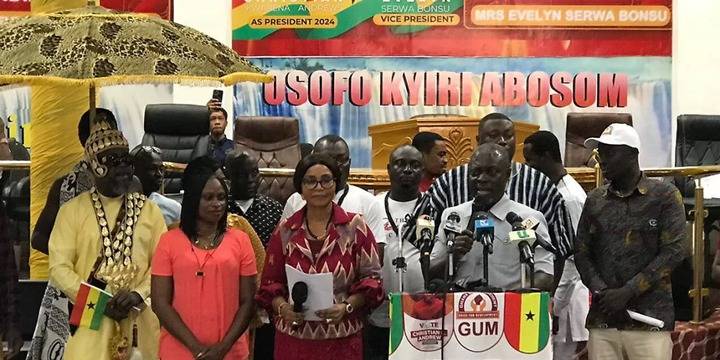The Ghana Union Movement (GUM) has unveiled an ambitious proposal aimed at overhauling the nation’s legislative structure by dramatically reducing the number of Members of Parliament (MPs) from the current total of 275 to a more streamlined assembly of about 40 representatives. This initiative reflects GUM's commitment to enhancing governance, improving legislative efficiency, and easing the financial burden that the existing parliamentary system imposes on Ghana’s resources.
GUM argues that the current high number of MPs leads to significant inefficiencies and legislative gridlock within Parliament. Rather than fostering vigorous debate and effective decision-making, the extensive assembly often obstructs progress. The party contends that lengthy discussions and divergent opinions can slow down the legislative process, delaying the passage of important laws and resolutions crucial for national development.
This inefficiency translates not only into a sluggish legislative process but also into substantial costs associated with maintaining a large number of parliamentarians. These expenses include salaries, benefits, and the necessary resources for each MP’s office, collectively putting a strain on public finances that could be redirected to more pressing areas of development, such as education, healthcare, and infrastructure.
During a recent press briefing in Accra, Christian Kwabena Andrews, the flagbearer of GUM, articulated the party's vision for reform. Known for his leadership within GUM and his advocacy for social and economic justice, Mr. Andrews positioned GUM as a catalyst for change, challenging the prevailing political norms. He emphasized that a smaller, more focused legislative body would be better equipped to drive meaningful policy changes, reduce partisan gridlock, and ensure that the interests of the Ghanaian populace are prioritized.
Andrews highlighted that by reducing the number of MPs, Parliament would not only become more efficient but also more accountable. A leaner assembly could streamline the decision-making process, enabling quicker responses to the needs of citizens and more effective governance. He believes that this reform could lead to increased public trust in the political system, as constituents would see a more active and engaged legislative body working in their favor.
The Ghana Union Movement, which draws its ideological inspiration from the principles of Ghana’s first president, Dr. Kwame Nkrumah, is relatively new to the country’s political landscape. The party made its national electoral debut in 2020, where it garnered 105,548 valid votes in the presidential election, accounting for 0.08 percent of the total ballots cast. Although this result placed GUM in third position behind the established New Patriotic Party (NPP) and the National Democratic Congress (NDC), the performance was significant for a newcomer facing 12 other candidates, many of whom had deeper political roots and broader support bases.
GUM’s proposal to reduce the number of MPs is not merely a financial consideration; it is also a philosophical stance on what effective governance should look like in Ghana. The party believes that a smaller parliament would lead to more direct engagement with constituents, fostering a stronger connection between representatives and the people they serve. This aligns with GUM’s broader goal of promoting transparency and accountability within the political system.
As Ghana looks toward future elections, GUM's proposal could spark important discussions about the structure and efficiency of Parliament. The party's commitment to reform may resonate with voters who are fatigued by bureaucratic inefficiencies and are seeking real change in governance. By advocating for a legislative body that is both smaller and more effective, GUM aims to position itself as a serious contender in Ghanaian politics, pushing for a system that prioritizes the needs of its citizens above all else.




No comments yet
Be the first to share your thoughts!